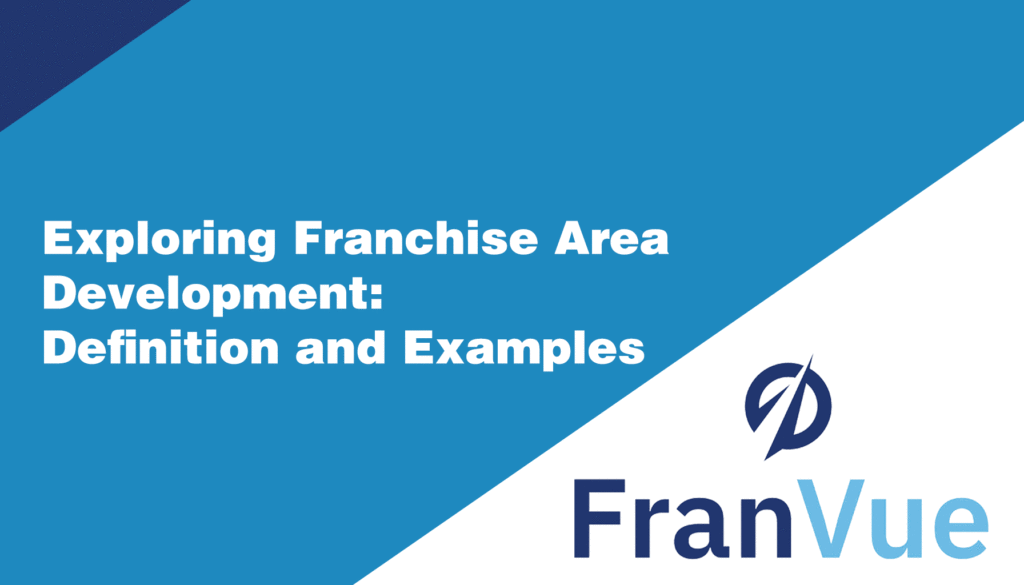Franchise Area Development Defined A franchise area developer engages in a contractual arrangement with a franchisor to establish numerous franchise locations within a designated region or market area. This arrangement grants the developer exclusive rights to operate franchises within that market for the duration of the contract.
This unique approach offers several advantages to both the franchisor and the area developer, although it does require careful consideration. To gain a deeper understanding of these arrangements and their suitability for both parties, let’s delve into the details.
What Is a Franchise Area Developer? While any franchisee may eventually expand their operations to include multiple locations, an area developer—more accurately termed a multi-unit developer—initiates the franchise relationship with the intent to establish multiple outlets.
Under a multi-unit development agreement with the franchisor, the area developer secures the right and obligation to establish a specified number of franchises within a defined market area over a predetermined timeframe.
Alternate term: Multi-unit developer
How a Franchise Area Developer Agreement Operates For instance, a multi-unit developer might commit to opening five franchises in Miami-Dade County, Florida, within the next three years. To acquire these rights, the multi-unit franchisee typically pays a non-refundable development fee, often applied on a pro-rata basis as each franchise agreement for each location is finalized.
Let’s assume the franchisor’s initial franchise fee is $30,000, with an additional $15,000 deposit for each subsequent franchise location the multi-unit franchisee agrees to open. If the multi-unit franchisee commits to launching five locations, they would initially pay the franchisor $90,000 upon signing the multi-unit development agreement.
Initial franchise fee: $30,000.00 Development fee (or deposit) (4 x $15,000): $60,000.00 Total payment: $90,000.00
As each additional franchise agreement is signed, the multi-unit developer pays the franchisor $15,000.00.
Initial franchise fee: $30,000.00 Less: pro-rata portion of development fee: $15,000.00 Total payment: $15,000.00
Franchise area developers can be found across various industries, from well-known fast-food chains like Subway and Sonic to beauty spas, retail stores, accounting and tax services, fitness centers, contracting service firms, and employment services.
The Advantages of Franchise Area Development While offering exclusively multi-unit development opportunities instead of single-unit options may not be the right path for every franchisor, there are significant advantages for both franchisors and franchisees when they enter into multi-unit development agreements.
- Exclusivity: Multi-unit developers gain the advantage of securing exclusive rights to operate franchises within their defined market area during the development agreement’s term. Once they have established all the franchises outlined in the agreement, or when the development agreement expires, market exclusivity typically reverts to the terms specified in individual franchise agreements.
- Reduced Fees: Multi-unit developers typically do not pay the same initial franchise fee as single-unit franchisees. The franchise fee for additional locations is usually reduced, while the developer pays the same initial fee for their first location, often in tiers. For example, the initial fee for franchises two through five might be reduced to $25,000, and further reductions may apply to locations beyond the first five.
- Royalty Reductions: Some franchisors extend the benefit of reduced royalties to multi-unit developers once they have opened a certain number of locations. This reduction makes sense, as supporting a multi-unit franchisee generally incurs lower per-unit costs. Multi-unit developers operate with a different cost structure than single-unit franchisees and typically maintain a back-of-house infrastructure that allows the franchisor to reduce support costs.
Franchisors can exert better control over market development thanks to the contractual obligations of multi-unit developers. This enables them to plan market support, advertising campaigns, and supply chain logistics more effectively. Multi-unit developers are also often more sophisticated and better funded than single-unit operators, providing franchisors with opportunities not as readily available with single-unit franchisees. This explains why 54% of franchised locations in the U.S. are owned by franchisees with multiple locations.
Risks of Multi-Unit Development For franchisors, the primary risk in entering multi-unit development agreements is the selection of an unsuitable developer. The franchisor must be willing to remove a market from consideration for other development opportunities, and there’s the possibility that the area developer may fail to meet their development timeline. These issues could be exacerbated if the developer fails to maintain their multiple locations according to brand standards.
However, with today’s thorough vetting protocols, the risk for franchisors is relatively minor and manageable. Properly structured development agreements incorporate specific dates for each unit’s development and cross-default provisions designed to protect the franchisor.
Classes of Franchise Area Developments A common mistake made by franchisors when marketing their franchise opportunity is assuming that their offering will appeal equally to both single-unit franchisees and multi-unit developers. If they do modify their offering, it typically involves a reduction in the initial franchise fee.
Another mistake is assuming that all classes of multi-unit franchisees are evaluating the opportunity for the same reasons. Well-designed multi-unit franchise offerings are attractive to multi-unit developers in general, while recognizing that strategic franchisees, private equity franchisees, and those solely seeking to operate have distinct needs and motivations for considering a franchise relationship.
To maximize the appeal to each class of multi-unit developers, the multi-unit offering and its marketing should be intelligently tailored.
Key Takeaways A franchise area developer enters into an agreement with a franchisor to establish multiple franchise locations within a designated market over a specific period. The area developer gains exclusive rights to operate franchises in this market, along with potential financial incentives. While multi-unit development offers numerous benefits, franchisors should exercise caution when selecting an area developer.


